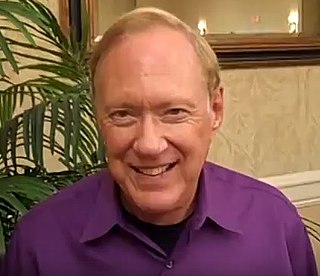A Quote by Kevin Leman
Most arguments with teenagers are setups. Your darling, simply stated, is manipulating you.
Related Quotes
Yes, I share your concern: how to program well -though a teachable topic- is hardly taught. The situation is similar to that in mathematics, where the explicit curriculum is confined to mathematical results; how to do mathematics is something the student must absorb by osmosis, so to speak. One reason for preferring symbol-manipulating, calculating arguments is that their design is much better teachable than the design of verbal/pictorial arguments. Large-scale introduction of courses on such calculational methodology, however, would encounter unsurmoutable political problems.
I am well acquainted with all the arguments against freedom of thought and speech - the arguments which claim that it cannot exist, and the arguments which claim that it ought not to. I answer simply that they don't convince me and that our civilization over a period of four hundred years has been founded on the opposite notice.
Highly technical philosophical arguments of the sort many philosophers favor are absent here. That is because I have a prior problem to deal with. I have learned that arguments, no matter how watertight, often fall on deaf ears. I am myself the author of arguments that I consider rigorous and unanswerable but that are often not such much rebutted or even dismissed as simply ignored.
Teenagers watch and listen to all kinds of things. It is the nature of being a teenager to seek out intense stuff. Stuff about death and sex and love and fear. Teenagers are the bravest, most curious, most philosophical, most open-minded readers there are, which is why so many less-than-young adults like writing for them.
Most of this film, however, is about interpretation - are these people terrorists or freedom fighters? Are they good or bad? Is cutting timber good or bad? And I don't feel like the answers to those questions are simple, so we don't try to answer them for the audience. I wanted to elicit the strongest - and most heartfelt - arguments from the characters in the film and let those arguments bang up against the strongest arguments of their opponents.
First of all, a giant corporation probably shouldn't be being hacked by teenagers. I put that on the corporation, not the teenagers. Teenagers are going to do what teenagers are going to do - rebelling. But if they're able to hack a big corporation, that seems like the corporation should be better at security.





































